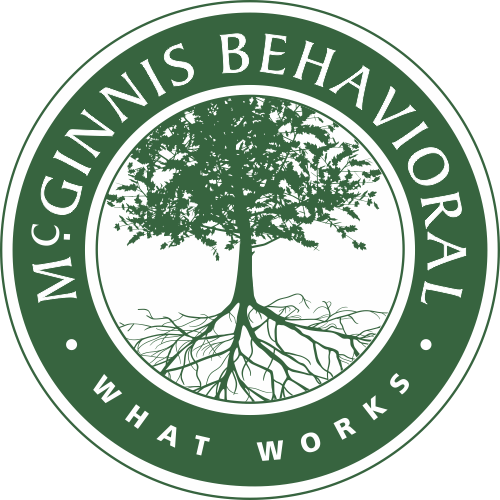Why Does My Kid Lie?
by Chris McGinnis, PhD, BCBA-D
Well, you’re not alone. Most kids lie.
In fact, most begin lying by their fourth birthday, particularly to conceal wrongdoing. Lying for personal gain is much less common among young children.
But why do they do that?
There are a few things going on here. First, natural empathy – the capability and tendency to consider what effect their behavior is having on the experience of others – comes online around the age of six as a function of brain maturation. Until then, children operate within a largely self-serving paradigm.
Second, many youngsters fail the marshmallow test, a classic experiment having to do with the delay of gratification. Give the child a marshmallow and tell the child the marshmallow may be eaten while you walk away for a few minutes but if it has not been eaten by the time you return you’ll gladly add a second marshmallow. Is your child a one-marshmallow or two-marshmallow kid? Lying may be thought of as one marshmallow, while maintaining your trust and goodwill at the expense of everyone’s momentary displeasure may be thought of as two marshmallows. The good news is that this can be taught to some extent. The bad news is that being a one-marshmallow kid appears to predict all manner of challenges throughout life expected when one struggles with delaying gratification.
Third, behavior is the product of historical consequences and present circumstances. If lying works as intended, it’s likely to continue. If lying doesn’t work as intended, it’s likely to abate. And with regard to those present circumstances, not being asked whether he brushed his teeth probably won’t produce a lie, whereas asking whether he brushed his teeth when you know darn well he didn’t will likely produce a lie particularly if the question has historically produced a lie. Relatedly, whatever we practice in response to an environmental cue, we get better at. We can be listening to the radio and talking on the phone as the light turns red and somehow our car just knows to stop; we’ve practiced that response – hitting the brake – to the light change so much it’s now mindless and automatic. “Did you brush your teeth” (red light). “Yes” (hitting the brake). Mindless, automatic, and exasperating.
So what can I do about my child’s lying?
The tricky business of behavior change first requires that you clearly communicate the what and why. This should be done when things are fine and everyone is happy and relaxed. “From now on, I do not want you to practice lying. Instead, I want you to practice telling the truth, no matter what. Telling the truth makes people trust you and it’s easier for you to make and keep friends. If I trust you, I’ll say ‘yes’ more.” The Four Gates of Speech found around the internet also works well especially with older kids: “Allow your words to pass through these four gates before speaking: Is what I am about to say true? Is it necessary? Is it helpful? Is it kind? If all four conditions are met, go for it.” Notice how communicating your expectations in this way focuses on what you want, which is honesty, instead of what you don’t want, which is lying. This works much better.
Second, from now on only ask questions you know the answer to already (that is, no longer ask your child questions to get information you don’t already have) and are likely to evoke a truthful response, not a lie. For example, knowing your child just brushed his teeth, asking him, “Did you brush your teeth yet?” is likely to produce a truthful response, to which you in turn praise by saying, “I’m so glad you told me the truth.” You are now setting him up to be truthful and to be praised for it, not to lie and be punished for it. And practicing truth-telling is better than practicing lying!
Third, if after all that you still get a lie, just walk away from it. The lie can’t work for him if he can’t engage with you on his terms. Consequences for the lie may await, but those consequences will no longer come in the form of arguing or correcting in that moment. Effective consequences for lying tend to take the form of, “My answer to your request, my dear, is no; you lied to me earlier and I need to be able to trust you when I say yes,” with no further arguing and no negotiating – you’ve already ended that conversation on your terms. And when tucking him in at night you may lovingly say, “Tomorrow is a new day, and I believe in you.”
The contrast you are now drawing between the sweetness and light befalling your child when he tells the truth and the relative nothing occurring when he lies to you will gradually train a truthful response in place of the mindless, automatic lying you’ve been encountering!
Dr. Chris McGinnis is a family psychologist in private practice based in Jupiter, Florida. His website is www.mcginnisbehavioral.com.




